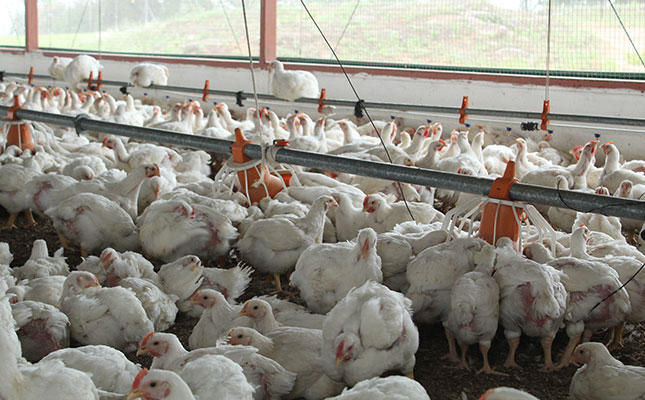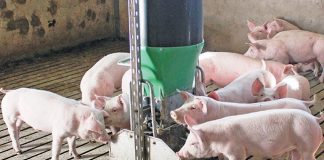
The fight against unfair competition and illegal imports is starting to reap benefits for the broiler industry.
Izaak Breitenbach, general manager of the South African Poultry Association’s Broiler Organisation, said at the recent online Poultry Market Information Day, co-hosted by the National Agricultural Marketing Council and the Department of Agriculture, Land Reform and Rural Development (agriculture department), that the industry had been in distress for at least 10 years because of low profitability.
READ Broiler production: Cashing in on the huge demand for live birds
This had resulted in poor re-investment and South Africa losing 30% of its market to imports.
Over the past three years, however, steps taken in accordance with the Poultry Sector Master Plan to grow the industry and address illegal and unfair trade practices, in particular, had resulted in 9,8% growth in production capacity, and a 22,2% decline in poultry imports in general and a 51% decline in bone-in chicken imports.
“We don’t have a problem with imports, with routine evaluations by Wageningen University [in the Netherlands] ranking South Africa as a highly competitive broiler producer, even more competitive than the EU. However, illegal trade and unfair competition, when countries sell poultry below their domestic prices, undermine the South African industry and its income and job creation potential,” Breitenbach said.
He added that these low prices rarely translated into lower consumer prices, but instead benefitted other players in the supply chain.
To even the playing field, Breitenbach said the industry would work on extending anti-dumping duties against the UK, the Netherlands, Germany, Brazil, Ireland, Poland, Spain and Denmark, and was in the process of renewing anti-dumping duties against the US.
Inspections would also be intensified at harbours to address the under-declaration of products, as well as tax evasion, while the entire trade measure system was under review to ensure easy and efficient applications.
READ Getting started with egg production
“To prevent an understatement of price, for instance, we’re looking at the implementation of a reference price and the use of ad valorem duties, which are percentage-based and therefore change in line with prices, rather than a specific rand-per-kilogram duty,” he said.
Health and safety measures would also be improved to ensure that imports complied with the same standards as domestic products.
“The idea is to have health inspections at ports and at sites for disease prevention,” Breitenbach said.
In addition, regulations concerning the rethawing of meat, which posed a health risk and was not permitted in South Africa, were being harmonised between the Department of Health and the agriculture department.
Breitenbach said that some importers took advantage of poor regulations by importing frozen chicken meat that arrived in South Africa thawed, and was then injected with brine before being sold as fresh meat to unsuspecting South African consumers.











